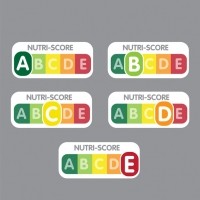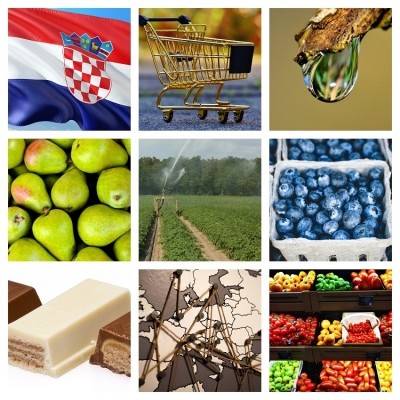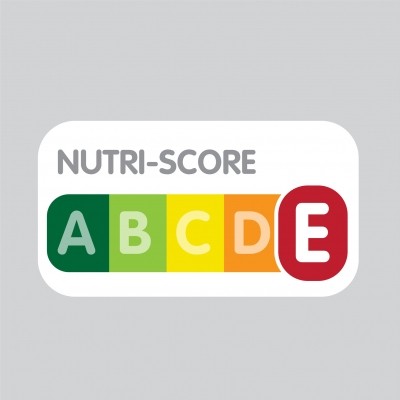Brussels Bulletin: Iceland Foods loses trademark dispute & France bans titanium dioxide

Iceland Foods loses trademark dispute
UK supermarket chain Iceland Foods has lost its trademark dispute with Iceland the country, after the European Union Intellectual Property Office (EUIPO) ruled the retailer may not register the word ‘Iceland’ within the EU.
In 2014, the supermarket secured an EU-wide trademark for the word ‘Iceland’. However, Icelandic authorities refuted the claim, saying it would prevent Icelandic companies from referencing the country’s name in their branding.
This latest decision sees the supermarket’s trademark invalidated.
“It has been adequately shown that consumers in EU countries know that Iceland is a country in Europe and also that the country has historical and economic ties to EU countries, in addition to geographic proximity,” said the EUIPO in a statement.
Iceland Foods plans to file an appeal against the EUIPO’s decision.
France bans titanium dioxide from 2020
France’s health and safety agency (ANSES) has ruled that there is not enough evidence to guarantee the safety of titanium dioxide. As a result, France will ban the use of the additive from 2020.
Titanium dioxide, or E 171 as it is known in Europe, is a colouring with no nutritional value. It is predominantly used in sweets, chewing gum, bakery, and sauces, to give a white, opaque or cloudy effect. It is also used in sun cream because it reflects UV light.
However, the UN’s International Agency for Research on Cancer (IARC) has classified titanium dioxide as a possible human carcinogen.
According to representatives from France’s ministries of economy and environment, no acceptable daily intake could be established for titanium dioxide due to a lack of data.
“ANSES stresses in its opinion that the evaluation of the risks related to the use of this additive still suffers from a lack of data that the marketers and producers of this additive should have provided.”
European business organisations call for ‘innovation-friendly’ rules on mutagenesis
In an open letter to Member States, a group of more than 20 European business organisations have called on the Commission to change legislation regarding mutagenesis.
Signatories include FoodDrinkEurope, the European Fermentation Group (EFG), European Crop Protection, European Flour Millers and Starch Europe.
“We, the undersigned European organisations are writing to reiterate our concern about the European Court of Justice ruling on case C-528/16 (25 July 2018), by which the Court interpreted the provisions of the EU GMO Directive 2001/18 in such a way that products resulting from innovative, targeted mutagenesis methods are regulated under the provisions of the GMO-Directive.”
The organisations go on to argue that introducing targeted genetic variation in crops can help to achieve sustainable development goals, and help contribute to healthy diets, the protection of biodiversity and a cleaner environment. “It can also contribute to making crops more resilient and better withstand climate change.”
The letter concludes with a plea to the EU Commission to initiative a legislative change that “provides innovation-friendly rules”. The full letter is available here.
Belgium adopts Nutri-Score
This month, Belgium’s minister of social affairs and health Maggie De Block, officially launched the Nutri-Score front-of-pack nutritional labelling scheme.
The system ranks foods from -15 for the ‘healthiest’ products to +40 for those that are ‘less healthy’. On the basis of this score, the product receives a letter with a corresponding colour code: from dark green (A) to dark red (F).
The Nutri-Score scheme, which is being introduced on a voluntary basis, has received criticism regarding its consistency at a pan-European level.
“It is difficult to require companies that use multilingual packaging in several countries to apply a different label system for each of these markets,” said the Federation of the Belgian Food Industry (Fevia) CEO Bart Buysse.
“So let our companies choose themselves if they can add additional information, in addition to the legally required information.”
‘1 hectare initiative’ proposed to encourage afforestation
An initiative designed to encourage the planting of trees in areas where there was no previous tree cover has been suggested by agricultural and rural development commissioner Phil Hogan.
At the ‘Our Forests, Our Future’ conference in Brussels yesterday (25 April), Hogan proposed the ‘1 hectare initiative’ could help Member States reach environmental policy objectives outlined by the post-2020 Common Agricultural Policy (CAP) proposals.
According to the scheme, Member States could elect to reward farmers financially for the afforestation of one hectare. The initiative would be supported through the CAP.
According to the European Commission, such an initiative could significantly contribute to the creation of valuable ecosystem services, such as water retention and soil erosion control.
At the conference, Hogan encouraged Member States to support the scheme, which he said would contribute to the achievement of environmental targets.
“…The future CAP provides the opportunity, but the political will to implement this initiative must come from the Member States. Hence, I hope you will spread the word.”



























